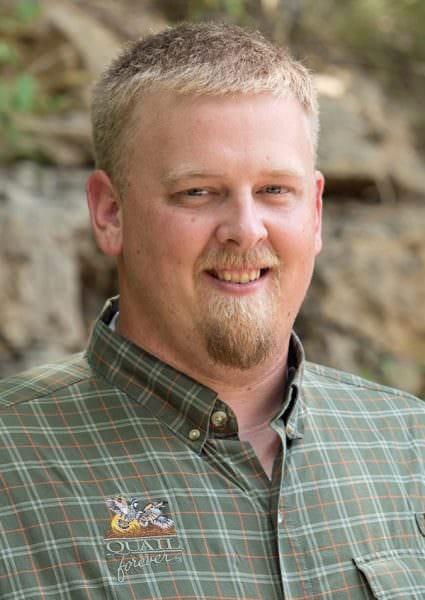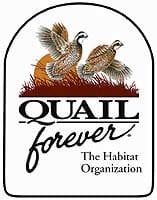

NORTH LITTLE ROCK, Ark. -(Ammoland.com)- Quail Forever and its partners have selected Ryan Diener as the organization’s first Senior Farm Bill Wildlife Biologist in the state of Arkansas.
Stationed in North Little Rock, Diener will provide state level leadership and wildlife technical assistance to landowners in Pulaski, Faulkner, White, Conway, and Van Buren counties through a unique partnership among state and federal agencies, with an emphasis on early successional habitat for bobwhite quail.
Created in 2003, the Farm Bill Biologist Partnership has provided a valuable benefit to landowners throughout the country who are interested in voluntary conservation program enrollment. Commonly referred to as the “One Stop Shop” for anything conservation or wildlife-related on private lands, Quail Forever biologists possess the knowledge of federal, state, and local programs to assist landowners in finding the right program to meet their personal habitat and land use goals.
Quail Forever’s Farm Bill Biologist Partnership has impacted 8.17 million acres for wildlife habitat conservation efforts nationwide, including technical assistance for more than 174,000 farmers, ranchers, and landowners.
“Quail Forever is thrilled to support bobwhite conservation efforts in Arkansas with the skill and expertise of Ryan Diener, a respected biologist amongst his peers and the quail community,” stated Chris McLeland, Quail Forever’s south region director. “We’d like to thank our partners for the opportunity to provide habitat assistance to landowners in Arkansas, and we look forward to growing the program and having a larger impact in the near future.”
Having already served as a Farm Bill biologist for Quail Forever in Kansas and Missouri since 2010, Diener’s extensive knowledge and experience with Farm Bill programs will be pivotal for the continued advancement of bobwhite conservation efforts in Arkansas. Diener gained his B.S. in Fisheries and Wildlife Sciences from the University of Missouri.
Among his experience as a Farm Bill biologist, he also brings an understanding of early successional habitat management, establishing and working with local prescribed burn associations, and a history of improving state level policies for conservation to his new position.
The hiring of the organization’s first Senior Farm Bill Wildlife Biologist in the state comes on the heels of a recent announcement for Quail Forever Specialty License Plates available in Arkansas starting in December 2017.
Signed into law on May 1, 2017, each plate purchase or tag renewal will provide a $25 donation to “The Habitat Organization” to directly impact bobwhite quail and other upland wildlife conservation efforts in Arkansas. The bill was initiated and carried out with the unwavering support of the Big Rock Chapter of Quail Forever.
Declining more than 90 percent in the past three decades due to habitat loss, restoring former bobwhite quail populations in Arkansas is now a focal point for multiple agencies and nonprofits. In recent years, the efforts of Quail Forever, the Arkansas Game & Fish Commission, and the National Bobwhite Conservation Initiative have successfully reestablished populations in select areas of the state.
Arkansas continues to achieve goals set forth by its 2015 Strategic Quail Management Plan, which identifies five large regions where restoration potential for bobwhite quail remains high – Ryan Diener will be working with landowners in the state’s central focal area.
Diener will be located within the U.S. Department of Agriculture (USDA) field office in North Little Rock, Arkansas, and began his new position on August 14th.
For more information about Farm Bill programs in Arkansas or to obtain a wildlife management plan for your property, contact Ryan Diener at RDiener@QuailForever.Org or 636-399-8733.
About Quail Forever:
Pheasants Forever, including its quail conservation division, Quail Forever, is the nation’s largest nonprofit organization dedicated to upland habitat conservation. Pheasants Forever and Quail Forever have more than 149,000 members and 720 local chapters across the United States and Canada. Chapters are empowered to determine how 100 percent of their locally raised conservation funds are spent; the only national conservation organization that operates through this truly grassroots structure. Since creation in 1982, Pheasants Forever has spent $708 million on 517,000 habitat projects benefiting 15.8 million acres nationwide.
